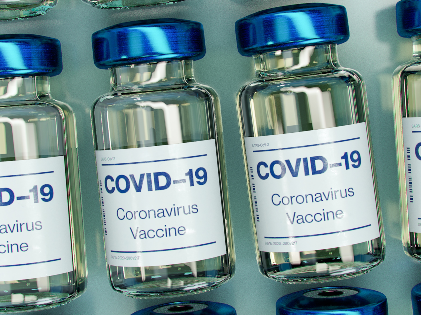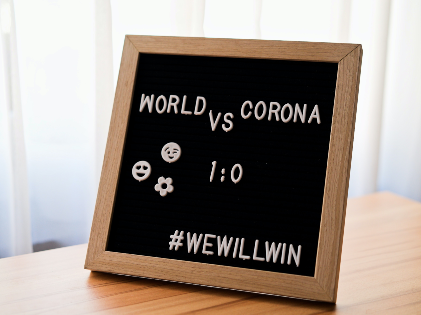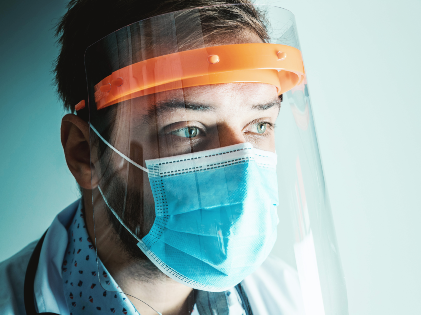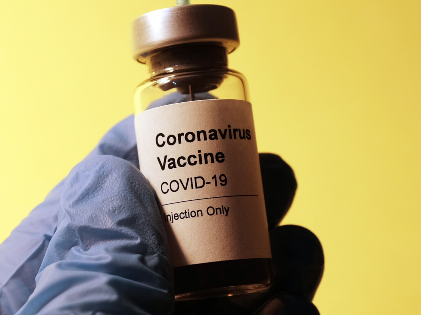 After months of waiting, American adults are finally eligible to get their COVID-19 vaccine by May 1. Thanks to President Biden, who made a formal announcement recently, the news naturally created quite a stir among Americans! As there are numerous COVID-19 vaccines approved in the US, public health experts stress that people should take whichever vaccine is available at a given time.
After months of waiting, American adults are finally eligible to get their COVID-19 vaccine by May 1. Thanks to President Biden, who made a formal announcement recently, the news naturally created quite a stir among Americans! As there are numerous COVID-19 vaccines approved in the US, public health experts stress that people should take whichever vaccine is available at a given time.
Presently, the vaccines are “in high demand.” Doses have started coming, and the country looks ready to embrace the vaccines. But medical experts have offered some invaluable advice that patients must follow before, during, and after the vaccination appointment. After all, it is possible to alter risks, if any, beforehand.
Before The Appointment
 To make the process a smooth one, ensure your documents are in place before May 1. This includes proof of eligibility like age and employment. And the priority would be for all the front-line healthcare workers or essential workers. Unfortunately, a driver’s license or state ID would prove useless. It makes sense to carry your birth certificate, employee badge, or payment evidence. There would be cases of people who are battling with underlying health ailments. For them, at few sites, there would be no compulsion to produce their IDs.
To make the process a smooth one, ensure your documents are in place before May 1. This includes proof of eligibility like age and employment. And the priority would be for all the front-line healthcare workers or essential workers. Unfortunately, a driver’s license or state ID would prove useless. It makes sense to carry your birth certificate, employee badge, or payment evidence. There would be cases of people who are battling with underlying health ailments. For them, at few sites, there would be no compulsion to produce their IDs.
They need to fill up a certification document. Medical specialists have also stated that taking steroids should discontinue using it at least a week before vaccination. The body’s ability to produce a good reaction is not likely to happen because of the ‘anti-inflammatory effect.’ So the best thing is to inform your doctor in advance before being vaccinated. Under such circumstances, they might ask you to stop the steroids or other medication which could harm the immune responses.
On The Day Of Vaccination
 Remember there will be many like you, so reach your destination before time. Track the exact site location and be careful so that you don’t experience delays. Clinics that are dispensing mass vaccinations should be wary about the workers. There are drive-through vaccination clinics, too, that have mushroomed due to the increasing need for vaccines. Much like the former, make sure you don’t consume any over-the-counter (OTC) pain relievers like ibuprofen or Tylenol just before the COVID shot.
Remember there will be many like you, so reach your destination before time. Track the exact site location and be careful so that you don’t experience delays. Clinics that are dispensing mass vaccinations should be wary about the workers. There are drive-through vaccination clinics, too, that have mushroomed due to the increasing need for vaccines. Much like the former, make sure you don’t consume any over-the-counter (OTC) pain relievers like ibuprofen or Tylenol just before the COVID shot.
After all, you wouldn’t like to compromise on the efficacy of the vaccine! Taking the shot means your dress should be appropriate enough to allow the person giving the shot- total access to the upper arm area. Above all, stay hydrated. As a result of dehydration, dizziness and constipation can set in. In most cases, arm pain is a common side effect. But if the discomfort tends to increase due to taking the injection, contact your medical expert.
After The COVID-19 Vaccination
 Aftercare is a must. Rather than getting overexcited and posting online about your experience while taking the shot, follow the necessary rules. As per the Federal Trade Commission (FTC), refrain from posting your personal information along with the vaccination card on social media. That’s an easy route for hackers to steal your data. Save yourself the fun and joy of getting the vaccination and start off celebrating with an alcoholic shot!
Aftercare is a must. Rather than getting overexcited and posting online about your experience while taking the shot, follow the necessary rules. As per the Federal Trade Commission (FTC), refrain from posting your personal information along with the vaccination card on social media. That’s an easy route for hackers to steal your data. Save yourself the fun and joy of getting the vaccination and start off celebrating with an alcoholic shot!
However, there is no substantial data to establish a connection between alcohol consumption and COVID-19. So, it is good to stay alert. Do not forget that side effects after taking the shot are temporary. Developing antibodies that would fight with the virus means some bodily changes would occur. And this means there would be a few reactions after the first vaccine, but they are not necessarily dangerous.
Continue Checking The CDC Guidelines
The Centers for Disease Control and Prevention (CDC) has revised COVID-19 guidelines in the first part of March. As a result, it allows people who are completely vaccinated to gather in small groups, sans face masks! But that doesn’t decrease the risks either. So even those who get a vaccination should continue to wear the masks in public spaces. And that is because they could still be at risk of spreading the virus.
Both social distancing and wearing masks are necessary, even if you have taken your shots. You still cannot be sure if you’re protected from COVID totally or simply from the symptoms of it, whether or not you have taken the vaccine. Do not hesitate to get in touch with CDC in case you have a doubt or query.




